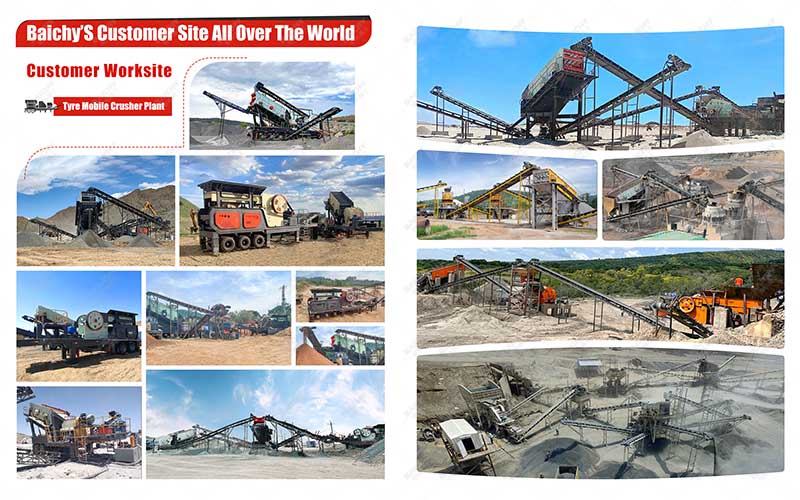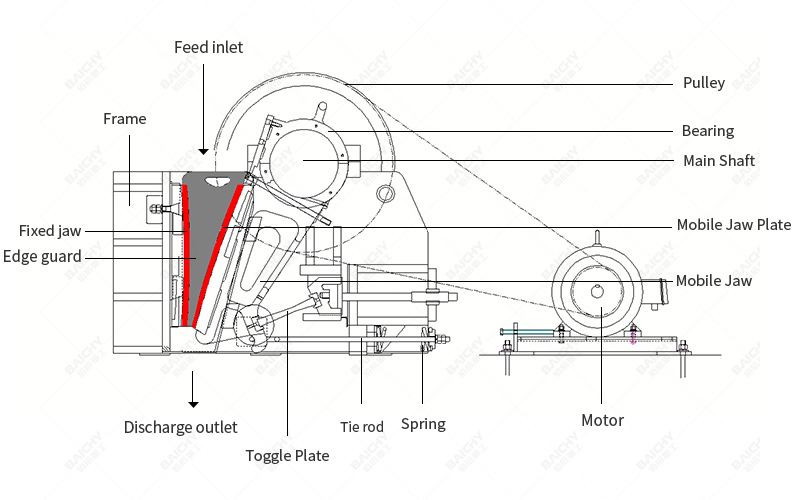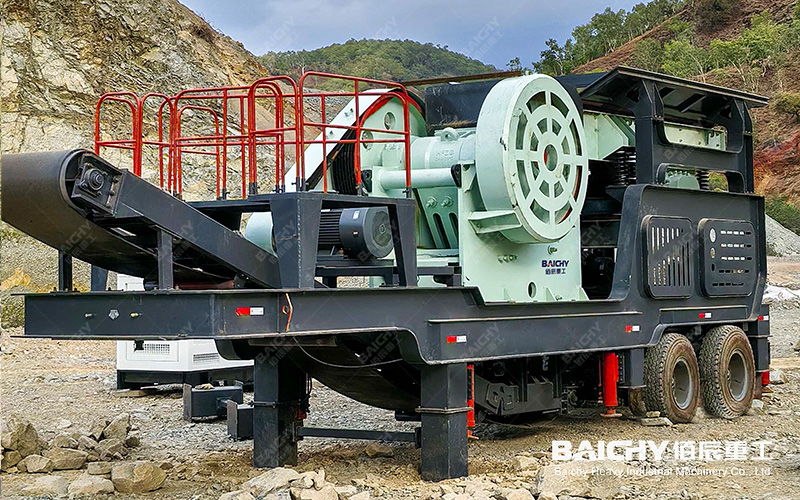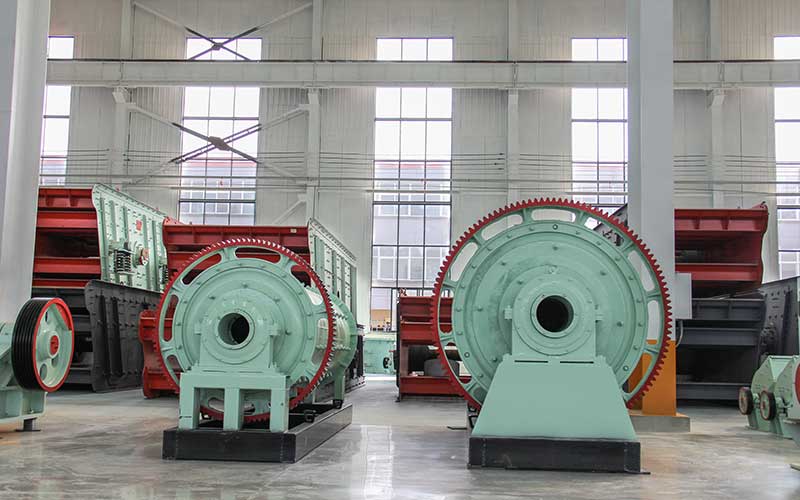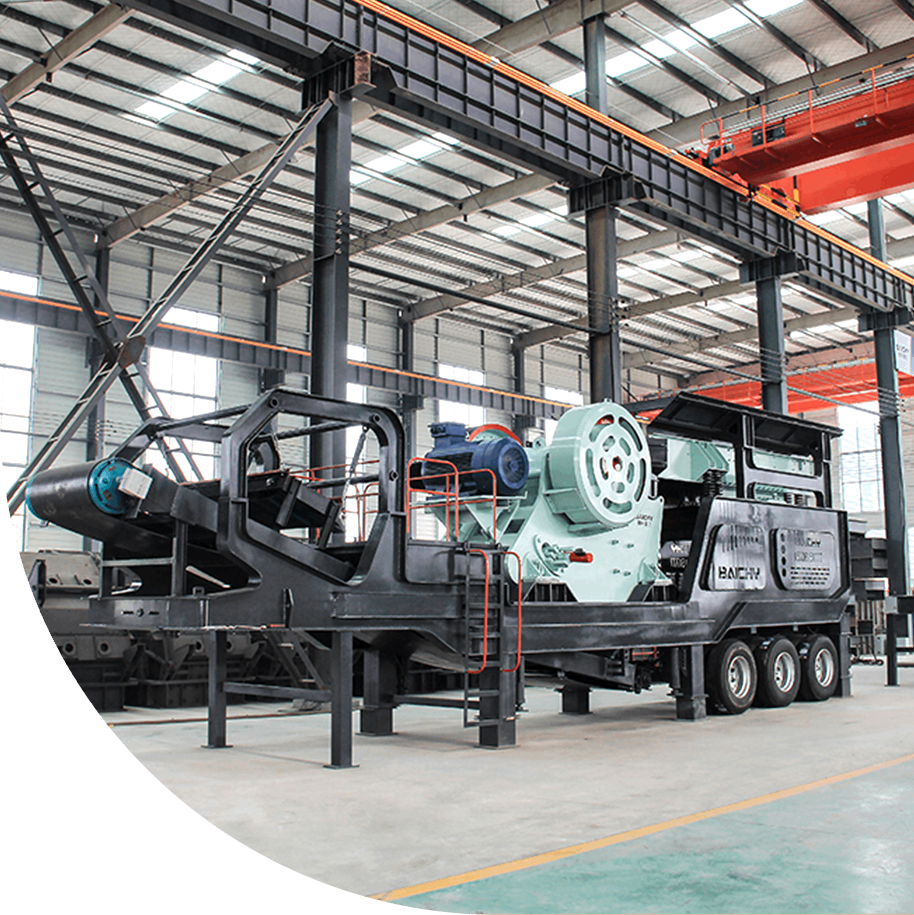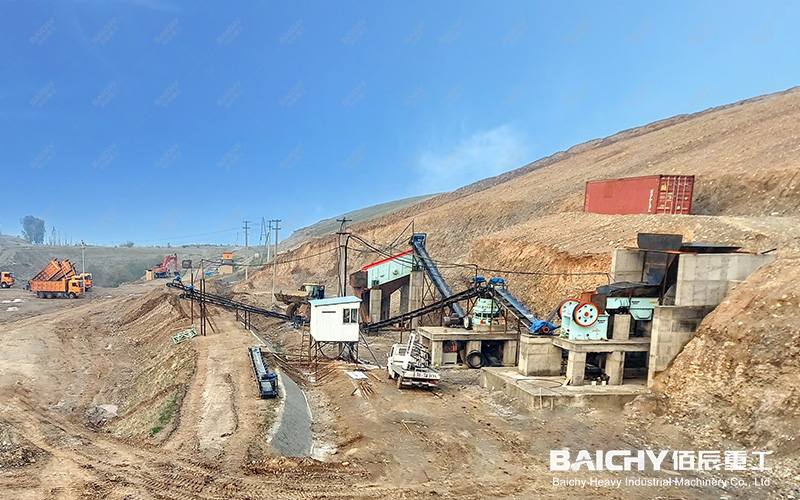
In the vast tide of modern construction, whether it's towering skyscrapers or winding highways, their foundations lie in the effective utilization of natural rock resources. The crucial first step in transforming vast swathes of rock into usable building materials lies with the rock crusher, often hailed as a "pioneer." This article will provide an in-depth understanding of this unsung "powerhouse," revealing how it breaks down hard materials and creates prosperity.
1. Core Force: How Does a Rock Crusher Work?
The core principle of a rock crusher is to use mechanical force to apply stress to rock, causing its internal stress to exceed its strength limit, thereby causing it to fracture. The primary forces involved include compression, impact, splitting, and abrasion. Different types of crushers employ one or more combined forces to accommodate rock materials of varying hardness and specifications.
II. Each Crusher Performs Its Own Function: A Detailed Explanation of Mainstream Rock Crusher Types
There is no universal crusher. Based on the crushing stage and material characteristics, they are mainly pided into the following categories:
1. The "Pioneer" of Primary Crushing - Jaw Crusher
◦ Working Principle: It simulates the movement of an animal's jaws, crushing rock through the periodic squeezing of the movable and fixed jaws.
◦ Features: Its simple structure, reliable operation, and high throughput make it the preferred choice for primary crushing in stone production lines. It is suitable for all types of rock with a compressive strength of up to 320 MPa.
2. The "Masters" of Secondary Crushing - Cone Crusher & Impact Crusher
◦ Cone Crusher: Utilizing the lamination crushing principle, it is suitable for crushing high-hardness materials (such as granite and basalt). It offers high efficiency, minimal wear, and produces a fine-grained finished product, but its price and maintenance costs are relatively high.
◦ Impact Crusher: Utilizing a high-speed rotating rotor to impact rock, achieving a "rock-beating-iron" impact crushing effect. The finished product has an excellent particle shape (mostly cubic), but wear-resistant parts wear more quickly, making it more suitable for medium- and low-hardness materials.
3. Fine Crushing Experts – Impact Crusher (Sand Making Machine)
◦ Working Principle: Utilizing the "rock-on-rock" or "rock-on-iron" principle, crushing materials through mutual impact.
◦ Features: Designed specifically for producing manufactured sand and aggregate shaping, it is the core equipment for manufactured sand production.
III. Application Scenarios: Where are rock crushers most effective?
• Mining: Crushing raw ore to a particle size suitable for transportation and subsequent beneficiation.
• Sand and Gravel Aggregate Production: Providing various specifications of crushed stone and manufactured sand for building, road, and railway construction.
• Infrastructure Construction: Processing rock generated during foundation excavation in projects such as water conservancy projects and nuclear power plants.
• Urban Construction Waste Resource Utilization: Crushing discarded concrete and bricks to generate recycled aggregate.
IV. Buying Guide: How to Choose the Right Rock Crusher?
Selecting the right equipment is crucial to project success, and the following factors should be considered comprehensively:
1. Material properties: Rock hardness, moisture content, mud content, and feed size.
2. Production capacity requirements: How many tons of material need to be processed per hour?
3. Product requirements: Are there any special requirements for output particle size and shape? (For example, high-grade concrete requires high particle shape.)
4. Investment budget: This includes equipment purchase costs, ongoing operation, and maintenance costs.
5. Production environment: Is a fixed production line or a mobile crushing plant required?
Rock crushers are the "tooth" of industry, and their technical level directly impacts resource utilization efficiency and the overall economic benefits of the project. Choosing the right crusher not only significantly improves production efficiency but also effectively controls operating costs. Before starting a project, it is recommended to communicate in depth with a professional equipment supplier, conduct material testing, and plan a solution. Let this reliable "pioneer" safeguard your project.
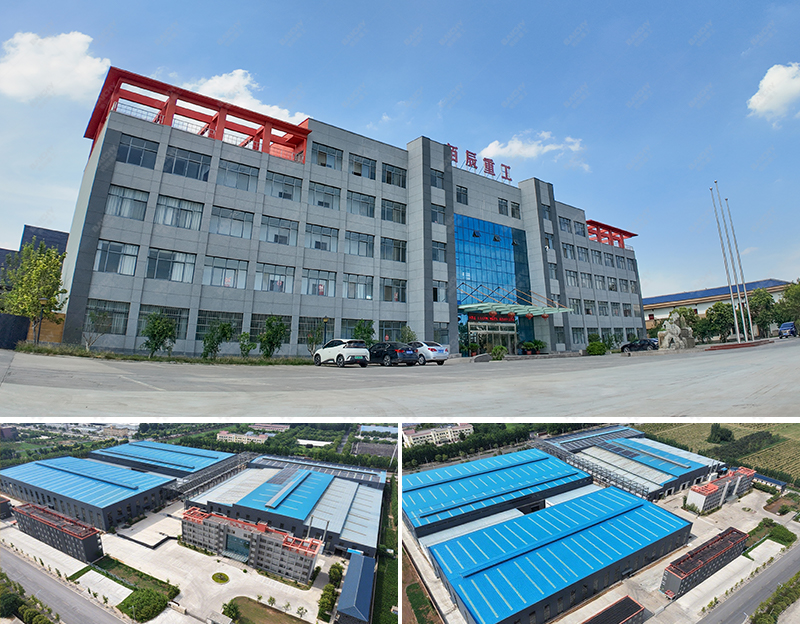
Baichy Heavy Industry – Your Trusted Partner for Seamless Equipment Operation
To ensure optimal performance of your equipment, Baichy Heavy Industry offers:
- Professional on-site installation guidance
- Comprehensive operator training
- 24/7 technical support & maintenance services
Our complete after-sales service system guarantees long-term, stable operation of your machinery with minimal downtime.
Protect Your Rights – Only Use Official Channels
To avoid scams and ensure authentic support, contact us exclusively through:
• Official Website: www.baichychina.com
• WhatsApp: +8615093222637
• Email: [email protected]
Your satisfaction is our priority – expect prompt, professional service every time.
(Note: Beware of unauthorized third parties claiming to represent Baichy. Always verify through official contacts.)
